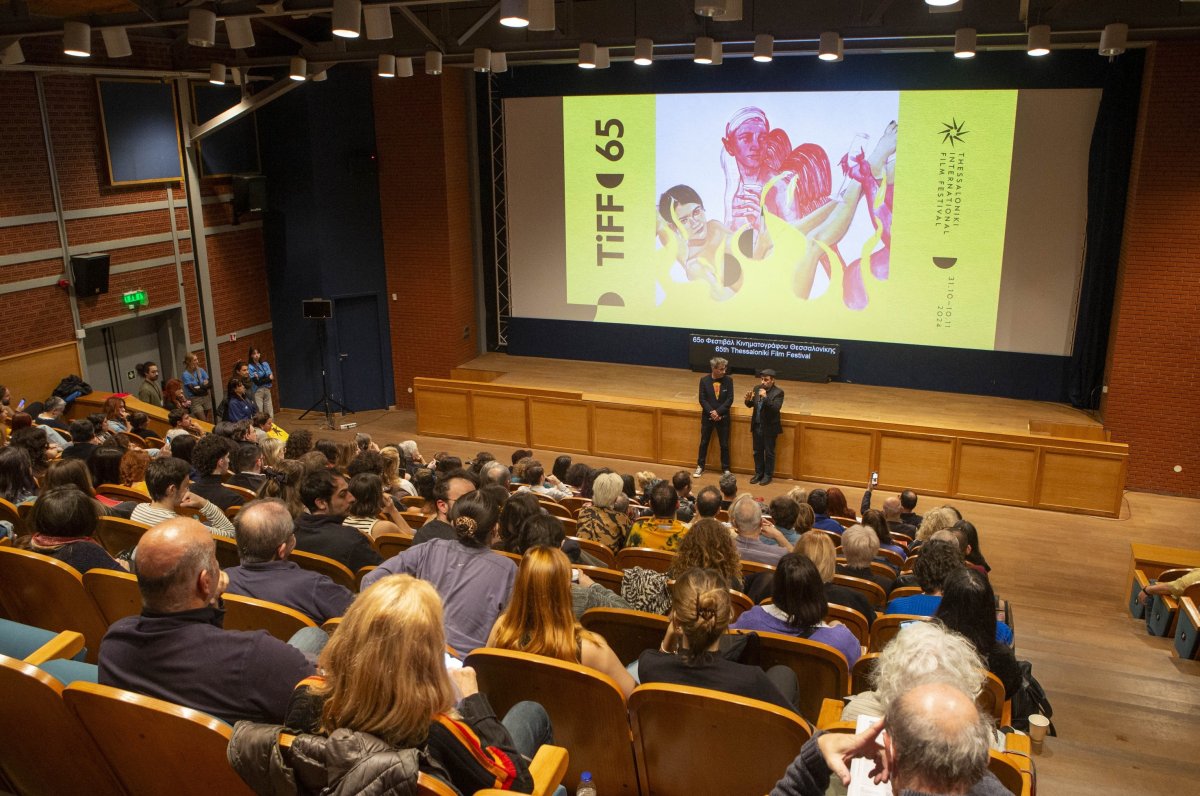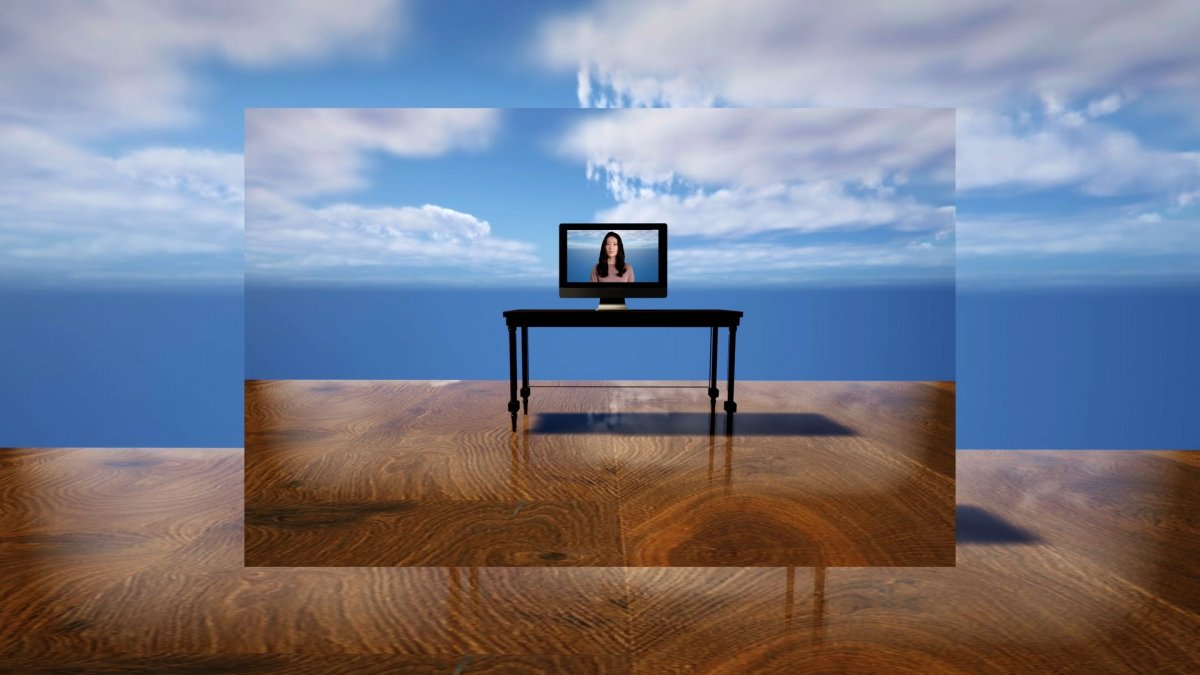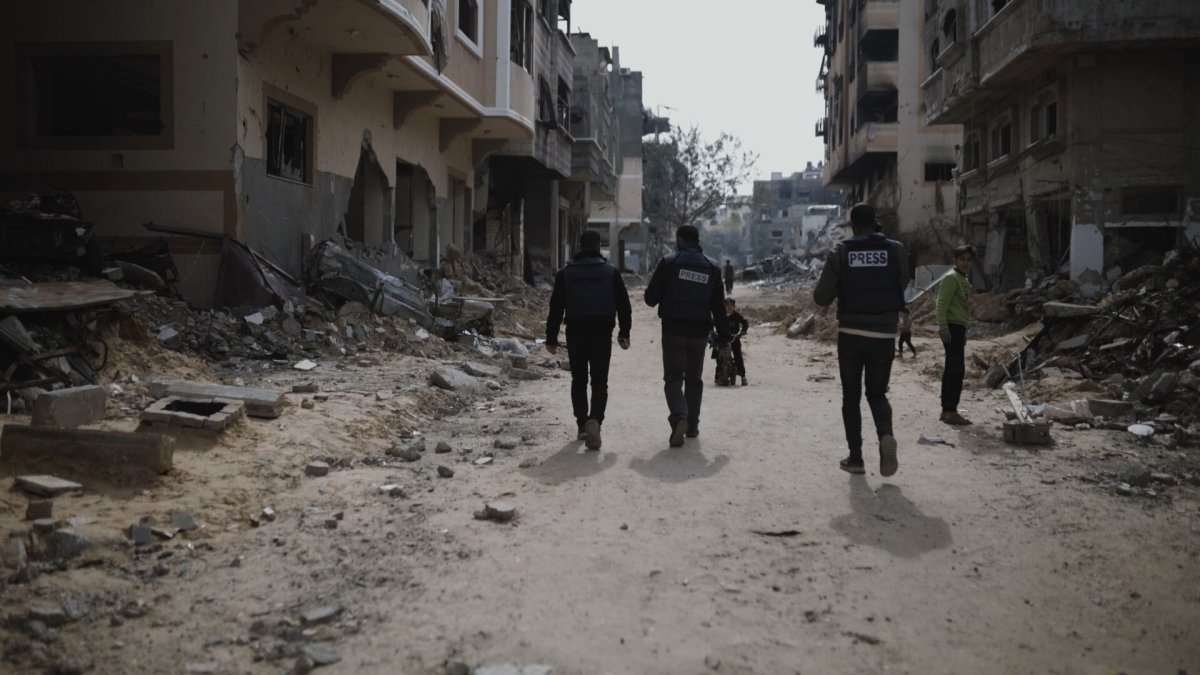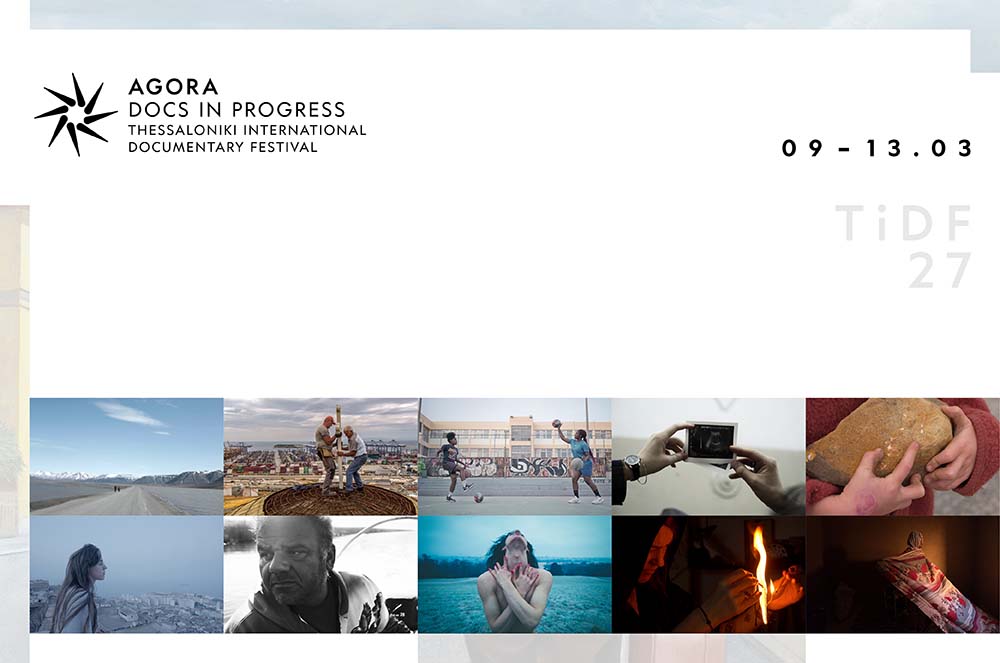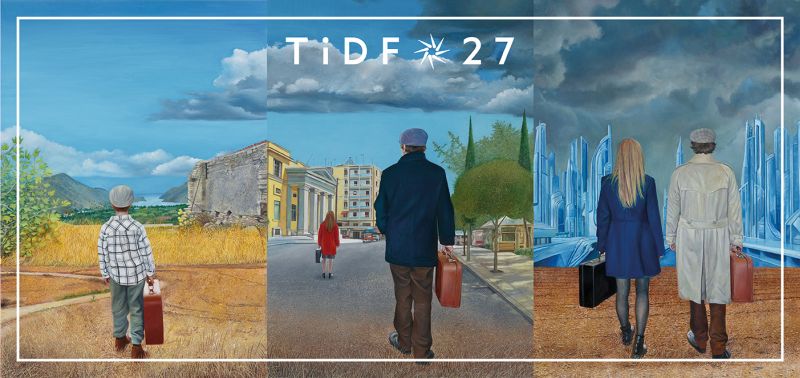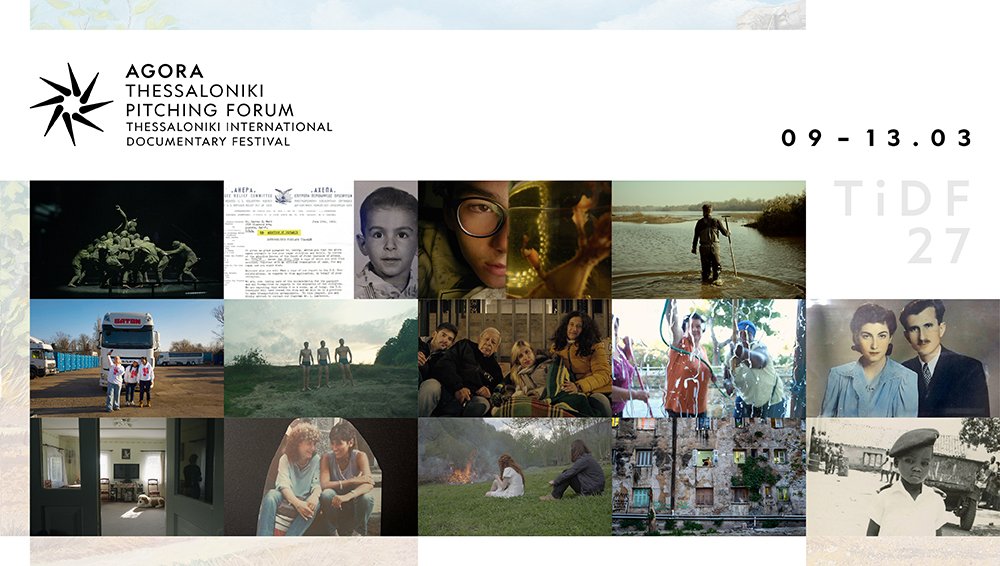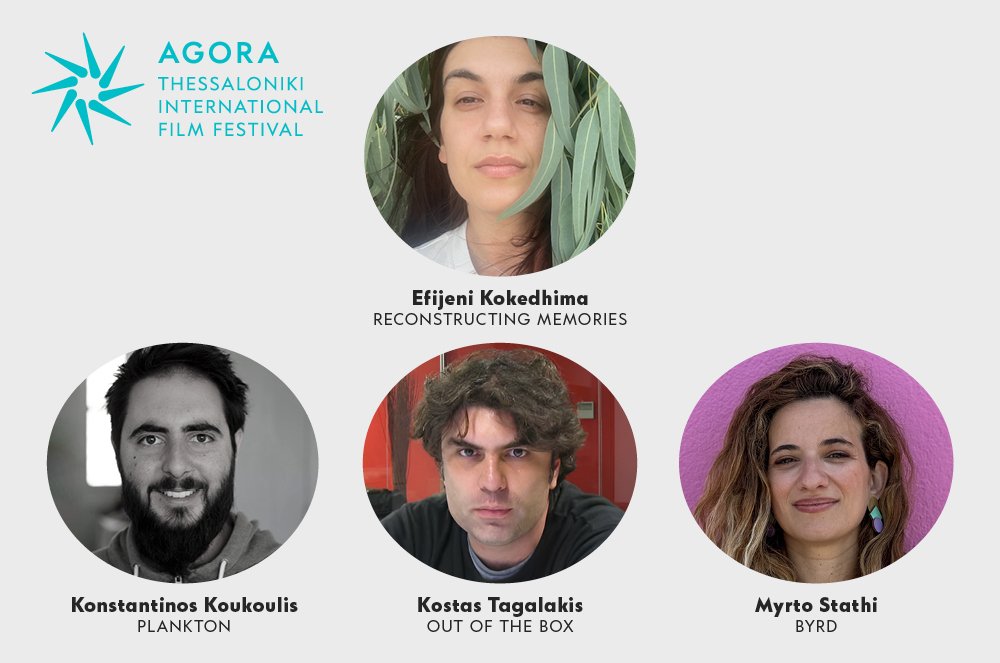On Thursday November 7th, at the packed Tonia Marketaki theater, the audience had the opportunity to enjoy five rare short films by Panos H. Koutras, which had never been screened in Greece. The screening and the discussion that followed took place within the framework of the all-day colloquium “The Attack of the Giant Cinema of Panos H. Koutras”, dedicated to the work of Panos H. Koutras and curated by Eva Stefani. The event is organized by the Festival in collaboration with the Department of Communication & Media Studies and the Department of Digital Arts & Cinema of the National and Kapodistrian University of Athens. The colloquium is part of the tribute hosted by the 65th TIFF to the pioneering and unconventional Greek filmmaker, titled “The real cinema of Panos H. Koutras.”
The filmmaker was welcomed by the Artistic Director of the Thessaloniki Film Festival, Orestis Andreadakis. “We make our way to the start of it all to see five remarkable short films that have never been screened in Greece. We embark on a journey through time, to 1983 and 1988. Ronald Reagan was the US President, Andreas Papandreou was the Prime Minister of Greece, and Margaret Thatcher was the Prime Minister of England – where most films were filmed. The ambiance and the aura of the era is reflected in the films, which serves as the starting point for the genuine cinema of this wonderful director, this amazing artist, and dear friend.”
Panos H. Koutras took the floor next. “I’d like to thank Orestis Andreadakis, Elise Jalladeau, Eleni Androutsopoulou and everyone working at the Festival because without you this screening wouldn’t be taking place – quite literally. I never considered myself to be a short film director. The format doesn’t fit me, most probably because I'm very verbose. I didn’t get funding for any of the short films I made. Everything you are about to see was completely self-funded. They were films I made with a lot of love and with my friends’ full support. When Orestis proposed to have them screened as part of the Festival, I thought it was a nice opportunity for me to find and restore them. The ‘find them’ part was sort of a challenge, as most of them had been lost. One was found in the attic of a partner of mine, in Belgium. Strange Relationship was unfortunately never found, only a VHS copy is available.”
Subsequently, the successful Greek filmmaker spoke about his partners in crime at that time. “I never gave my undivided attention to these films, I neglected them because there was always the stress of finding another project and earning a living, and as such I never had the time nor the inclination to devote any effort or time. As I mentioned earlier, these films became reality thanks to my friends’ and partners’ boundless love. Namely, my full-time partner and producer, Martien Coucke, who lives in Australia and found it a bit challenging to get here. My leading lady and muse at the time, Lindy Papageorgiou, who stars in two of my films. Angela Brouskou, who was a source of inspiration since I was 14 and still is to this day. Besides a very dear friend, she is also an exceptional artist. And Marianna Papageorgiou, who has been a beacon in my life and a source of endless inspiration from then until now. I’d also like to thank Studio 235 for restoring the films, as well as Sakis Mouzanis, Nikos Moutselos, Nikos Pastras, Christos Gartaganis, and AnMar. I’d like to dedicate these films to the women in my life; Angela Brouskou, Lindy Papageorgiou, and Marianna Papageorgiou, to whom I also dedicate this wonderful event.”
Following the screening of the films, Panos H. Koutras spoke with Leda Galanou, film critic and the Festival's events and activities coordinator. “These are films I never held in high regard because I was never a short film director. It was not the medium I fell in love with. There are directors making amazing short films, and mine are not even close to their level. Through these, I was expressing something personal, my love for cinema and my friends. As I already mentioned, I never received funding for these films. Everything you saw was self-funded, made with my friends’ love and help. I never made a short film with the intention of submitting it to a film festival. I honestly consider The Βelch of Lydia Von Bürer the highlight of my career; I should have quit right after, and moved on to other things. In fact, it was quite a success because through the film school I was enrolled at, it was accepted at the London Film Festival. I remember my teachers wondering why I added the word “belch” in the film’s title and didn’t choose to leave it as a surprise for the finale. I told them I wanted the belch to serve as a statement, not a surprise,” he noted.
Immediately afterwards, Panos H. Koutras added: “I was always a latent heterosexual – or so I was told by a psychiatrist friend in Paris. My greatest loves were women. Misty Days of Spring was a film featuring certain experiential elements. It revolves around two friends who grew up and the times somehow passed them by. I was putting those films on hold until I managed to finish my first feature-length film. The Attack of the Giant Moussaka took five years to be completed,” Panos H. Koutras stressed. At this point, Leda Galanou pointed out that “in this film, we see a lot of elements that went on to appear in your subsequent films. The supermarket scene is brilliant. Furthermore, the film is a testament to the rich musical references you have,” she stated, giving the floor to the Greek filmmaker once more.
“It was our culture in that era, that’s how we lived at a specific point in time. Watching these films now, I am not overwhelmed by nostalgia. I am happy they were restored. For example, Afternoon Stars came about in a moment of desperation, when I decided to make a film inspired by Andy Warhol. I only had one 16mm film reel left, later on we found another one, ending up buying a third one, shortly afterwards. I borrowed the camera, but unfortunately I had no audio. Warhol always said ‘my films have terrible sound and picture, but the people are wonderful,’ and this quote became my guide and dogma. I took two wonderful people and we made the film without sound, we just had a tape recorder. Nikos Pastras cut and sewed each part because the second person in the film doesn't speak at all. The idea was that we would change the reel, but the sound wouldn't stop. The instructions had been given beforehand as we had spent the whole weekend all together. It was similar to a life experiment for us all. We didn't rehearse, but we had decided what we would do in advance. The TV on the set played whatever was on at that exact moment. Music is very important for me because it sets a film’s mood. It has always been fascinating to me that music can shape and alter the meaning of a scene. It was a moment I found myself at a dead end, and thus I revisited Warhol for the umpteenth time. That weekend felt like living in our own ‘The Factory.’”
Angela Brouskou then took the floor. "It was a shock for me because I didn't remember what happened in the film exactly. But on the other hand, since I perceived it at that time as something completely ‘casual,' I can finally say now that I liked the outcome. Every time I watch the film, it evokes a new feeling within me. And behind this superficial atmosphere of boredom depicted in the film, there is something profoundly sad - in the artistic sense." Panos H. Koutras added: “Angela is a person with a lot of humor, and here a very authentic side of her emerges. I’m a very private person, but in this tribute, I decided I had to show everything, expose all that I am. Misty Days of Spring in particular, is a very personal film because Marianna and I have a strong relationship and the film was just that, a statement on our relationship. We used to hang out then, a group of very talented individuals. Yorgos Nikas, who is no longer with us, a remarkable painter and a very good friend of mine. Konstantin Kakanias. Konstantin's girlfriend at the time, Martien, a ceramist and fashion teacher at present. The directing was a joint venture with Marianna, we were constantly exchanging ideas. Unfortunately, I didn't manage to find the film’s original version.”
Marianna Papageorgiou then took over. “I enjoyed every film immensely, having also experienced them in person. For me, the most important thing was that we laughed tons, and that we took life seriously, without taking it too seriously. We had a lot of passion, yet at the same time we were always thinking how we could incite laughter even in the face of something truly tragic. To put it simply, we were having a lot of fun." After that, Panos H. Koutras spoke about the short film with which he has the strongest personal connection. "The Fall and Rise of Lydia Von Bürer is the film that I relate to the most. I am a bad singer, even though I love music very much. If I had a good voice, I'd like to be a rock star. The film’s protagonist has talent, but no voice. Lindy is a source of inspiration for me. In the film, everything is handmade and manual. One time, we tied her up high, but in one scene the machine broke down and she stayed there a long time. The dress in the last scene was made of plaster, and Lindy couldn't move at all. Trust me, Lindy made great sacrifices for this film," the filmmaker stated, and Lindy Papageorgiou added: "I have been acting in the theater since I was a little girl. My heroine sings at one point 'I lived for art and love; God, is this how you repay me?’. And as I was singing, I could see everyone on the set crying. We loved each other very much," Lindy Papageorgiou said.
Wrapping up the event, Leda Galanou asked Panos H. Koutras whether the choice of including a happy ending in his films is intentional. “I don’t consider any film of mine to have a truly happy ending, but I like that the people perceive it this way. But most certainly, the finale is never unhappy, or sad, or punitive for my heroes,” the Greek filmmaker concluded.
Panos H. Koutras’ short films screened at the 65th Thessaloniki International Film Festival:
Afternoon Stars (1989)
One afternoon. One shot. Two stars. Three reels of film. An homage to Andy Warhol, Angela Brouskou, and Vangelis Papadakis. The film was shot in an afternoon during the summer of 1989, on Patision Street, downtown Athens. In a single take. With no synchronised sound, no script, no music copyrights.
The Fall and Rise of Lydia Von Bürer (1988)
She had a lot of talent, but unfortunately no voice.
Strange Relationship (1987)
An unofficial video clip of Prince’s titular song, conceived and performed by Panos H. Koutras (boy) and Marianna Ghyzi Papageorgiou (girl). Filmed on Super 8 in the summer of 1987 in Paris.
Misty Days of Spring (1984)
It's Spring but it's still foggy in London. Both of them live like the punk days never ended. He wants to leave, she is afraid of losing him. Their last act will be some solution.
The Βelch of Lydia Von Bürer (1983)
Lydia is singing alone in her apartment, when suddenly, at the climax of the aria, she is betrayed by her own self.


